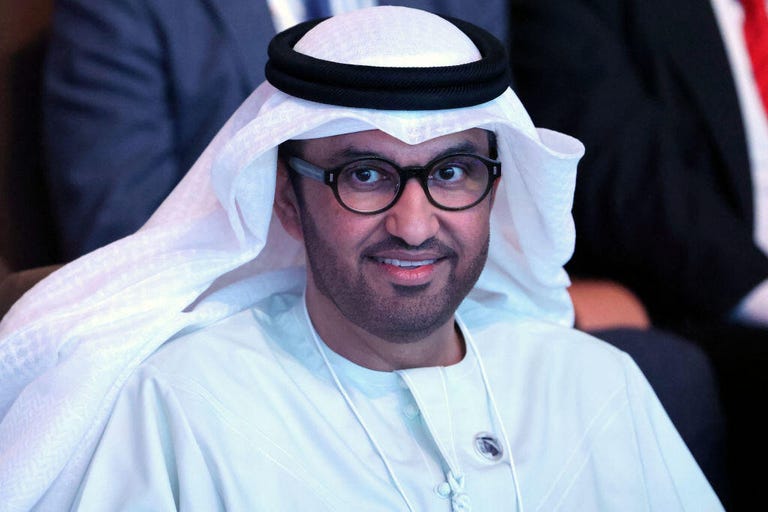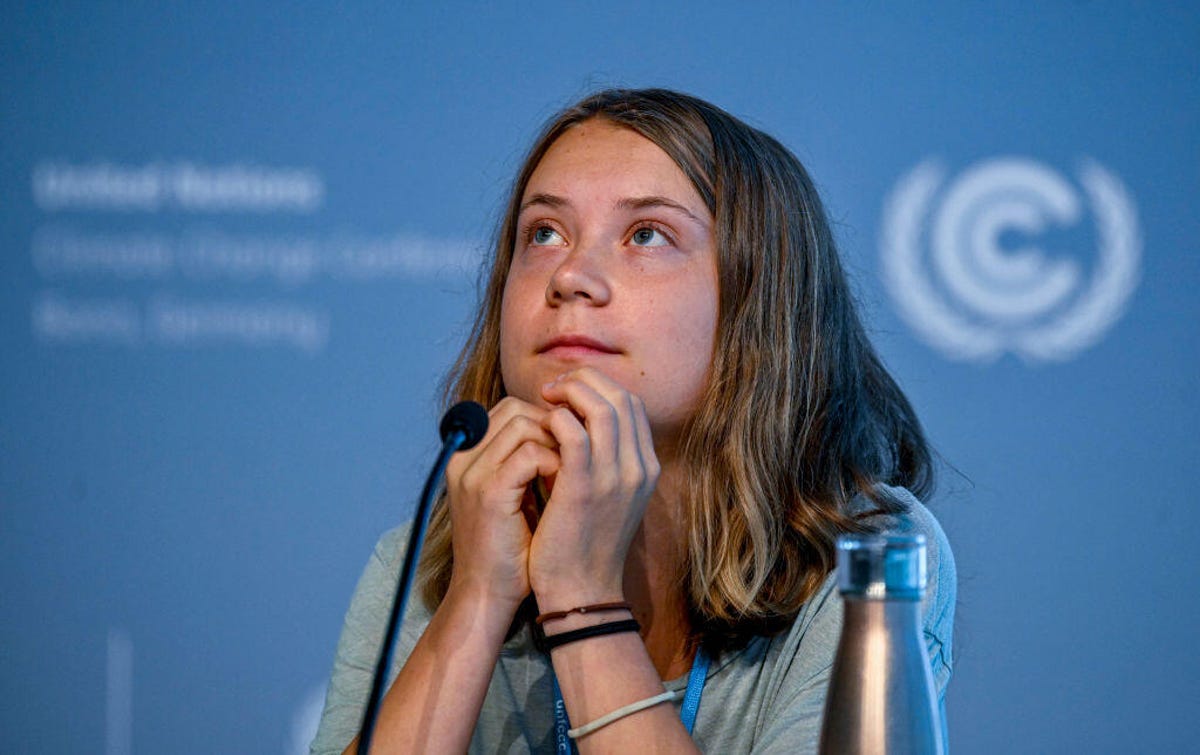This July, as heat waves swept across Europe and the US, NASA and the European Commission’s Copernicus Climate Change Service both made a damning prediction: 2023 was set to be the hottest year on record. Now, with the Northern Hemisphere’s extreme summer heat and wildfires behind us, we’re still on track for that prediction to be correct.
This story is part of CNET Zero, a series that chronicles the impact of climate change and explores what’s being done about the problem.
Furthermore, a study led by renowned NASA climate scientist James Hansen and published in November puts us on track to blow past the threshold of 1.5 degrees Celsius of warming compared to preindustrial levels this decade, rather than next, as previously thought. This threshold marks a tipping point for our planet, after which, scientists say, Earth will experience devastating and irreversible changes that threaten lives, livelihoods and habitats.
This is the scientific reality that politicians and officials representing countries from across the world must grapple with as they assemble this week in Dubai at the UN’s COP28 climate conference. Throughout the confab, they will assess countries’ progress toward meeting the goal laid out in the 2015 Paris Agreement of limiting global warming to well below 2 degrees Celsius, while working on how to wean society off fossil fuels.
On the opening day of the summit, the UN announced a partnership with Microsoft that will see it use an AI-powered tool to measure how well countries are following through on their climate pledges, reported the New York Times. COP’s detractors, including climate activist Greta Thunberg, frequently criticize the conference for putting too much emphasis on empty promises (or “blah blah blah,” as Thunberg calls it) that yielding little-to-no action. If it works as promised, the UN and Microsoft’s use of AI could significantly improve accountability and highlight the countries not pulling their weight.
Whether climate summits like COP28 are an effective way to tackle the climate crisis is a heavily debated topic in environmental circles. As an attendee at the two previous climate summits (COP27 in Egypt and COP26 in Scotland), I’ve witnessed firsthand the struggle between countries to reach agreements and the frustration of other participants at the lack of ambition.
But even as scientists have been clear with their warnings about human-caused climate change, they’ve also been clear about the solutions: The transition to renewable energy sources, such as solar, hydro and wind, must be prioritized to minimize the amount of greenhouse gasses being pumped into the atmosphere. Plus, if we’re to stand a chance of creating a livable future on our planet, there can be no new development of fossil fuel projects.
This isn’t exactly what politicians want to hear. While they’re onboard with embracing and expanding renewables, many governments, including the UK and the US, continue to greenlight new gas and oil projects. But when they come together at the UN summit, other participants will demand they justify their actions on the global stage, as everyone attempts to get on the same page about how to tackle the most pressing problem of our time.
“Countries are far off track in meeting climate promises and commitments,” UN Secretary General Antonio Guterres said in a press conference in June. “I see a lack of ambition. A lack of trust. A lack of support. A lack of cooperation. And an abundance of problems around clarity and credibility.
“It’s time to wake up and step up,” he said.
As anyone will know who’s wrestled with a personal cost/benefit analysis on whether to install solar panels on their house or if it makes sense to buy an EV, trying to make the best decisions for the future of our planet isn’t always straightforward. But gatherings such as COP represent our best chance of getting everyone on the same page.
What is COP28?
COP28 is the most important event on the climate calendar. The annual global meetup this year is in Dubai in the United Arab Emirates. It started Thursday and runs until Dec. 12 (although the event often runs over as officials work through the night to finalize agreements).
The United Nations has been hosting COP (which stands for “conference of the parties”) summits since 1995 as a way to gather the countries annually and assess progress in dealing with climate change. It’s at COPs that governments have signed some of the most significant climate agreements, including the 1995 Kyoto Protocol and the 2015 Paris Agreement.


Sultan Al Jaber is president of COP28.
Not everyone is happy that COP28 is taking place in the UAE, a petrostate that’s one of the top five oil-producing countries in the world. This is compounded by the fact that the man the UAE has called upon to serve as president for this year’s event is Sultan Ahmed Al Jaber, the head of Adnoc, the UAE’s biggest oil company. Climate activist Greta Thunberg called the decision “completely ridiculous.”
Al Jaber, who also serves as chairman of the UAE state-owned renewables company Masdar, told The Guardian in an interview last month that while he wasn’t the obvious man for the job, he was committed to making the summit a success. “My focus is to phase out emissions from everything,” he said. “Regardless of where it comes from.”
In the week leading up to the climate talks, the BBC and Centre for Climate Reporting revealed they had obtained copies of official briefing documents in which the UAE outlined plans to discuss fossil fuel deals with nations during preliminary COP28 talks.
In the opening days of the summit, the Guardian revealed that Al Jaber had said at an event in November that there was no scientific basis for needing to phase out fossil fuels, and that pursuing a full phase-out would “take the world back into caves.” Climate scientists and other critics objected heavily to this statement, arguing that phasing out fossil fuels was the only way the world stands a chance of limiting warming to 1.5 degrees.
Who is (and isn’t) attending COP28, and what are they saying?
As COP28 kicked off in Dubai, the summit reported 80,000 people were registered to attend, making it the largest COP ever. The attendee list includes many of the world’s most powerful and influential figures who are currently assembling under one roof to hammer out deals designed to ensure a livable future.
The White House confirmed just days before the summit started that President Joe Biden will not attend this year’s climate talks. Biden is conspicuous by his absence after previously making high-profile stops at COP27 last year in Sharm el Sheikh, Egypt, and at 2021’s COP26 in Glasgow, Scotland. He’s also talked many times about putting the climate at the heart of his administration.
In his place, Vice President Kamala Harris and Special Presidential Envoy John Kerry are leading a US delegation to Dubai, including senators and members of Congress. Kerry will likely use the talks as an opportunity to resume discussions with China with the aim of reaching joint agreements between the two nations. He’ll also reportedly unveil a new global strategy for producing nuclear fusion energy.
Other notable people who are in attendance at COP28 include King Charles III, a longtime supporter of environmental causes who made the opening address of the summit. He reminded attendees that “the world does not belong to us,” as he issued a call to arms to leaders attending the summit.
One high-profile, highly anticipated person was forced to bow out of COP at the last moment due to illness: Pope Francis. His visit to the UN climate summit would have been a first for any pontiff. In a papal exhortation in October, he urged governments to make COP28 a turning point. The pope called for decisive action and defended the actions of climate activists fighting for a just transition away from fossil fuels and toward renewables.
Along with the officials from government delegations, climate activists and members of civil society and nongovernmental organizations play an important role at the UN climate summit. Many of them are normal people who have become involved in the climate justice movement through local and national campaigning.


Climate justice activists play an important role at UN climate summits.
Their presence at COP is considered to be crucial, as they help to hold governments accountable when they don’t fulfill their commitments. It also means that people who are being affected by climate-related issues have their voices heard by those with decision-making power.
It’s up to individual countries as to who they include in their national delegations at COP, and for some, this means including representatives of fossil fuel companies. Last year at COP27, Global Witness counted 636 people with ties to fossil fuel companies – a number that could be set to rise this year, with the summit being held in the UAE.
What’s on the agenda at COP28?
COP is always a highly political event, but it will involve discussions about making access to renewable power more cheaply and easily available, creating green jobs and ensuring that people around the world have access to fresh air, clean water and a healthy environment to live and work in.
The agenda for COP28 is dictated largely by the president of the event, who is chosen by and from the host nation. This summer, Al Jaber outlined four priorities for the summit:
-
Fast-tracking the renewable energy transition.
-
Fixing climate finance by securing funding for the most-affected, lower-income countries from wealthier, high-polluting countries.
-
Focusing on people, livelihoods and nature.
-
Making this the most inclusive UN climate summit to date.
Preliminary talks ahead of the summit saw an agreement to phase out fossil fuels rise to the top of expected outcomes for COP28. This would be an important step after two years ago in Glasgow, when language in the final agreement around ending reliance on coal was watered down at the last moment to read “phase down” rather than “phase out.”
These small differences have caused huge divisions between countries at previous climate conferences, and threaten to do so again at COP28. There are strong differences in opinion as to whether the shift to renewables should also allow the development of new fossil fuel projects.
One anticipated source of tension was around financing climate reparations. But the first announcement out of COP28 confirmed that a deal had been struck to establish a loss and damage fund. This is an early win for Al Jaber, but more significantly for the civil society groups and climate justice activists who have been fighting for decades for a breakthrough that will hopefully see compensation reach those who are most impacted by climate change, but have done the least to cause it.
Setting ambitious renewable energy targets is expected to be another point of agreement among countries in attendance. Plans are currently in the works to triple renewable energy targets to reach more than 11,000 gigawatts by 2030. Ramping up renewables has widespread support, but some countries are likely to resist an agreement that focuses on renewables without also building in plans to phase out fossil fuels.
Brokering such an agreement will be a tough task for Al Jaber. Not only will he need to facilitate negotiations between many rival nations, but he will need to make sure discussions don’t get sidetracked and prevent key players from walking away.
If all goes well, the summit will conclude with a solid commitment to move away from fossil fuels and speed the transition to renewable energy, leading to a cleaner, safer, greener planet for us all.
